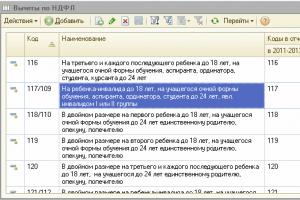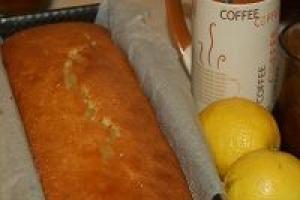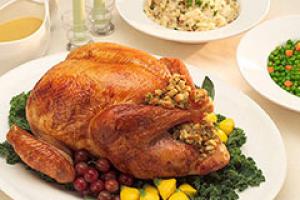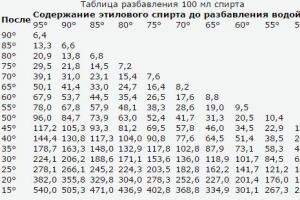Adjectives in English language have two degrees of comparison: comparative degree ( comparative form) and superlatives ( superlative form).
comparative (comparative form) is used when comparing one person or object/phenomenon with another. For example, “colder than.”
Superlative (superlative form) is used when comparing one person or object/phenomenon with other people or objects of the same group. The superlative degree is translated using the word “most.” For example, “the coldest.”
Table of formation of degrees of comparison of adjectives
| Adjectives | Comparative degree | Superlative | |
| One-syllable and some two-syllable adjectives ending in -er-, -ow, -le | … + -er | the... + -est | |
| hot large fast narrow long simple thin |
hotter larger faster narrower longer simpler thinner |
the hottest the largest the fastest the narrowest the longest the simplest the thinner |
|
| Adjectives starting with -y | busy | busier | busiest |
| Two-syllable and polysyllabic adjectives | more/less + … | the most/least + … | |
| beautiful interesting |
more beautiful more interesting |
the most beautiful the most interesting |
|
| Exceptions | good bad old Much/many |
better worse older elder farther further more less |
the best the worst the oldest the eldest the farthest the furthest the most the least |
Note: Some two-syllable adjectives have TWO forms for the comparative degree and two forms for the superlative degree. For example: happy, clever, common, narrow, pleasant, quiet, simple, stupid.They are shaped like -er, -est, and the form with more/most.
Examples:
She is happier than him. She is the cleverest person Lady Connie knows. ⇒ She is happier than him. She is the smartest person Lady Connie knows.
Lady Connie is more happy than John. Lady Connie is the most happy woman in the world. ⇒ Lady Connie is happier than John. Lady Connie is the happiest woman in the world.
In monosyllabic adjectives ending in a vowel followed by a consonant, the final consonant is doubled:
big-big ger - the big gest
In two-syllable adjectives that end with a consonant followed by -y, -y is replaced by -i:
crazy - crazy ier - the craz iest
Further And farther indicate distance:
Balmora is six miles further/further.
But further(but not farther) can also mean "in addition":
There is no further books. ⇒ Apart from these books there are no more here.
Words elder/eldest used before nouns only with family members:
my elder sister/brother/son, my eldest son, she is the eldest(but not she is older than me).
Older/oldest used in relation to people and objects/phenomena:
Connie is older than Kate. This sword is older. ⇒ Connie is older than Katya. This sword is older.
Lesser formed from less but it's not real comparative. We can't use than after it: It means “not so good.” It is usually used in phrases like:
the lesser of two evils.⇒ the lesser of two evils.
Forming sentences with comparisons
as...asUsed in affirmative and interrogative sentences. Translated as “the same way ... as”:
The game is as interesting as the film. ⇒ The game is as interesting as the movie.
twice as...as,
three times as...as
…
Translated as “two/three times...”:
His sword is twice as big as mine. ⇒ His sword is twice the size of mine.
Bitcoin is three times as expensive as it was a few months ago.
She is twice as old. ⇒ Bitcoin is three times more expensive than it was a few months ago. She's twice as old.
half as much/many- twice smaller
half the size- twice smaller
half my age- twice as young
half the weight- twice as easy
Examples:
The box is half the size of previous. ⇒ The box is half the size of the previous one.
Lady Connie is half my age. ⇒ Lady Connie is half my age.
My trunk is half the weight of yours. ⇒ The chest is twice as light as yours.
not so/as…as
Translated as “not like ... as”:
Lady Connie is not so fat as her father. ⇒ Lady Connie is not as fat as her father.
much, far, a great deal, a lot- much, much, significantly
a bit, a little- A little
The book is far more interesting than the film. ⇒ The book is much more interesting than this movie.
Your website is a great deal better than mine. ⇒ Your site is much better than mine.
the most- most
the most- extremely, very
most- majority, most
Examples:
This is the most interesting book. ⇒ This is the most interesting book.
Most young people are fond of vapes. ⇒ Many young people are fans of vaping.
This is the most expensive book. ⇒ This is the most expensive book.
the the+ comparative degree of adjective
Translated as “then..., the...”:
The harder the game, the better I play. ⇒ The tougher the game, the better we play.
the same...as
Translated as “the same ... as”:
Lady Connie is the same age as the witcher ⇒ Lady Connie is the same age as the witcher.
than/as me/him/her/them/us
Lady Connie taller than me. ⇒Lady Connie is taller than me.
Degrees of adjectives comparison - Degrees of comparison of adjectives
Adjectives in English do not change by number or case, they change by degrees of comparison. This applies to qualitative adjectives. Relative adjectives do not have degrees of comparison (about qualitative and relative adjectives - see the material "").
There are three degrees of comparison of qualitative adjectives in English:
1. Positive. An adjective in its usual form.big big
2. Comparative. Shows that one object has bo? higher degree of quality than the other. Often used with the preposition than.
bigger
3. Superlative. Indicates that the object has the highest degree of quality.
the biggest
Rules for the formation of degrees of comparison
1. The comparative degree is formed by adding the suffix -er [?r] to the stem of the word. Superlative - suffix -est [?st]. A few nuances:A. In adjectives with one syllable, the last letter is doubled.
hot - hotter - the hottest hot - hotter - the hottest
b. If the last letter of the adjective is -y, and there is a consonant before it, then it is replaced with -i; if it is a vowel, then -y remains unchanged.
busy - busier - the busiest
gray - grayer - the grayest gray - grayer - the grayest
V. If the last letter in an adjective is silent -e (that is, not pronounced), then when written it is omitted and merged with -e in the comparative or superlative suffix.
cute - cuter - the cutest
2. If an adjective has two or more syllables, then in the comparative degree more is used before it, and in the superlative degree - the most:
beautiful - more beautiful - the most beautiful beautiful - more beautiful - the most beautiful/most beautiful
3. There are a number of two-syllable adjectives that can change according to both the first rule and the second:
able
angry angry
clever
common common
cruel
frequent
friendly friendly
gentle
handsome
narrow narrow
pleasant
polite polite
quiet
serious serious
simple
sour sour
4. Exceptional adjectives:
good/well - better - the best
good - better - the best/best
bad - worse - the worst
bad - worse - worst
little - less - the least
small - less - the smallest/smallest
much (with uncountable)/many (with countable) - more - the most
a lot - more - most of all
old - older - the oldest
old - older - the oldest
old - elder - the eldest
elder - older - the oldest (only about people; for example: my elder brother my elder brother)
late - later - the latest/the last
late - more recent - the latest (new, latest in time)
near - nearer - the nearest
closest - closer - closest (distance)
near - nearer - next/the next
close - closer - next (in time or in order)
far - farther - the farthest
farthest - more distant - farthest (distance only)
far - further - the furthest
distant - more distant - the most distant (in the abstract sense)
Expressing various degrees of quality inherent in the object whose name is determined by this adjective or adverb. These degrees are positive(Positive Degree), comparative(Comparative Degree), excellent(Superlative Degree).
Positive degree (interesting - interesting) adjectives are called their basic form, which does not express the degree of comparison.
Comparative degree (more interesting - more interesting)(comparative) adjectives. The comparative degree allows you to compare objects.
If the adjective consists of 1 syllable, the ending -er is added: nice -nicer; big - bigger. If there are two syllables and the ending of the verb in the base form is -y, the ending changes to -ier: heavy - heavier; early - earlier. If the adjective is long (consists of 2/3/4 syllables), the word more is used - more: expensive - more expensive.
Superlative degree (the most interesting - the most interesting)(superlative) adjectives. The superlative degree of adjectives in English is necessary to indicate the quality to which the word “most” can be added.
Don't forget to add the article the! If the adjective consists of 1 syllable, the ending the...-est is added: nice - the nicest; big - the biggest. If there are two syllables and the ending of the verb in the base form is -y, the ending changes to the...-iest: heavy - the heaviest; early - the earliest. If the adjective is long (consists of 2/3/4 syllables), the word most is used - the most (most): expensive - the most expensive.
| Positive degree | comparative | Superlative |
|---|---|---|
| cold - cold | cold er | the cold est |
| hot - hot | hot ter | the hott est |
| sunny - sunny | sun ier | the sun iest |
| dangerous - dangerous | more dangerous | the most dangerous |
| Exceptions: | ||
| good/well - good | better - better | (the) best - the best, the best |
| bad/badly - bad/ill - sick, unhealthy (about a person) | worse - worse/in a worse state of health (about a person) | (the) worst - the worst, worst/in the most difficult condition (about a person) |
| little - little, small | less - less | (the) least - least of all, smallest, smallest |
| many, much - a lot | more - more | (the) most - most of all. largest (by number, size, degree) |
| far - distant, distant | farther ["fɑːðə], further ["fɜːðə] - further: further news = any more news | (the) farthest, furthest - the farthest |
| old - old | older (about age)/elder (about seniority) - older: elder brother - older brother | (the) oldest/eldest - the oldest |
| late - late | later - later | (the) last - last |
After adjectives, superlatives should be used in with cities, buildings, etc. exceptions: of my life, of the year. For example, It's one of the oldest castles in Britain. - This is one of the oldest castles in Great Britain. It was one of the worst experience of my life. - It was one of the worst experiences of my life.
In English it requires special attention and careful study. Adjectives have three forms: positive, comparative and superlative. By analogy with the Russian language, we can give an example:
- big (positive) - more (comparative) - biggest (superior).
In English, three ways are used to form adjective degrees:
- suffixal;
- composite;
- exceptions.
Suffixal way of forming adjectives
The method applies only to one-syllable adjectives and to adjectives consisting of two syllables but ending in -y, -er, -ow. In this case, the comparative degree is formed by adding -er to the end of the word. And superlative - by adding -est and the definite article the before the adjective. For a clear example, let’s create a table with the translation of degrees of comparison of adjectives in English:
| tall (high, incredible) | taller (higher, more incredible) | the tallest (the highest, the most incredible) | Mike is the tallest boy in his class. |
| short | shorter (shorter) | the shortest (the shortest) | It was the shortest weekend in my life. |
Don't forget that when you add a suffix to a word, it may undergo some changes. So, for example, if a word begins with the letter -y, and it is preceded by a consonant, then the letter -y changes to -i.
If a one-syllable adjective ends with a stressed vowel and one consonant, then the last consonant is doubled when forming the comparative degree.
Also look at the table of degrees of comparison of adjectives below.
| hot (hot, hot) | hotter (hotter, hotter) | the hottest (the hottest, the hottest) | It was the hottest day in this year. |

Compound way of forming adjectives
This method of formation is used only for polysyllabic words. To form adjectives we put the word more or the most before the adjective, depending on what degree we need. We will also consider a clear example in the table of degrees of comparison of adjectives in English.
Exceptions in education
This method includes so-called exception words. There are not many of them in the English language, but they have their own characteristics that need to be remembered. Below is a table of exceptions for degrees of comparison of adjectives in English, which you need to know by heart.
| good (good) | better | the best | She is the best student in her class. - She is the best student in her class |
| bad (bad) | worse | the worst | I got the worst mark in whole class. - I got the worst grade in the whole class |
| little (small) | less | the least | This room in hotel is less preferable for me. - This hotel room is less suitable for me |
| many/much (many) | more | the most | I need more information for doing my job well. - I need more information in order to do my job well |
| old (old) | elder/older | the eldest/the oldest | This car is older than me. - This car is older than me |
| far (far) | further/further | the furthest/the farthest | Let's go further in our discussion. - Let's move further in our discussion |
The last two adjectives require close attention. It is necessary to understand the difference between the older and elder forms. We use the words elder/the eldest only when talking about family ties. In all other cases we use the words older/the oldest.
My brother is elder than my sister. - My brother is older than my sister.
It is the oldest house in our village. - This is the oldest house in our village.
The words farther/the farthest are used only in their literal meaning when talking about physical distance. In other cases we use the words further/the furthest.
We are going farther and farther in deep forest. - We go deeper and deeper into the dark forest.
Let's go further in our discussion. - Let's move further in our discussion.

It is necessary to pay attention to the fact that there are adjectives that do not change according to degrees. Such forms are characteristic only of those adjectives that express some degree of a particular attribute, quality or phenomenon. It is worth remembering that this topic is studied at an early stage of language learning, so all tables of degrees of comparison of adjectives in English for children will be as useful as for adults.
Exercises to practice
Fill out the table of degrees of comparison of adjectives in English with translation:
| positive | comparative | excellent | translation |
| different | |||
| hot | |||
| innovative | |||
| musical | |||
| smart | |||
| good | |||
| much | |||
| peaceful | |||
| patient | |||
| fortunate | |||
| happy | |||
| easy | |||
| clever |

Put the adjectives given in brackets into the correct form:
- Do you know our... (far) destination?
- I couldn't solve this task on my math test. It was the ... (difficult) for me.
- History is ... (easy) for me than Art lessons.
- My mum is... (old) than my dad.
Exceptions to degrees of comparison of adjectives in English. The table must be filled out from memory.
| good | ||
| worse | ||
| the most | ||
| elder | ||
| little |
Translate into English:
- My grandfather is the oldest in our family.
- It was the most terrible memory of my life.
- Yesterday I met one of the most beautiful girls on the planet.
- I promised that I would study better.
- My friend is the kindest person in the universe.
In Russian, adjectives are words that denote a characteristic of an object, phenomenon or person and answer the question “what”. Similar to Russian, in English adjectives also exist and play an important role, decorating speech, making it more lively and vibrant.
We can say that, in general, all the rules of adjectives that exist in the Russian language are also present in English. The presence of degrees of comparison of adjectives was no exception - when learning a foreign language, this is one of the main topics related to the rules of writing adjectives. At the same time, the good news is that degrees of comparison are also the easiest rule. The reason is that the method of forming degrees of comparison of adjectives almost completely coincides with the Russian-language method.
Let's figure out which ones exist degrees of comparison of adjectives in English, and how they are formed.
Existing degrees of comparison
In order to make English speech more rich, the language distinguishes two degrees of comparison of adjectives - comparative and superlative. Sometimes, in accordance with another classification, a positive degree of comparison is added to the traditional two varieties - this is the ordinary form of the adjective that is familiar to us.
The main task of degrees of comparison is to facilitate the ability to speak more accurately about a particular phenomenon and subject. In addition to adjectives, there are also degrees of comparison for adverbs - i.e. we can say that those parts of speech whose goal is to describe characteristics have them.
Before you get acquainted with the degrees of comparison, it is worth remembering that all adjectives themselves are divided into three large groups - relative, qualitative and attractive. If an adjective expresses the quality of an object, it is called qualitative. Examples of these are “good” stool, “cold” weather. At the same time, other varieties are distinguished - relative and possessive. Example of relative adjectives: “plastic” window, “dog” tail. An example of possessive adjectives is “grandmother’s” grandson, “Serezhin’s” textbook. Everything is the same as in Russian.
It is important to remember that only qualitative adjectives can have degrees of comparison. You can't say that the tail will be "less doggy" and the grandson "more granny." But we can always judge the quality of the weather - the weather is “less cold”, and the chair is “better” than the chair.
In English, there are three degrees of comparison for adjectives: comparative, superlative and positive:
- The positive degree of comparison (positive) is the simplest, most familiar form of an adjective. This type of degree of comparison describes the property of an object or phenomenon: cold - cold, soft - soft. Here is an example of a sentence that uses a positive adjective: The dog is kind - the dog is kind.
- Comparative degree of comparison (comparative) is a kind of comparison of the object or phenomenon under consideration with another according to a certain characteristic. For example: one is bright and the other is brighter (bright - brighter), one is hot and the other is even hotter (warm - warmer). Here is an example of a sentence that uses a comparative adjective: The dog is kinder - the dog is kinder.
- The superlative degree of comparison (superlative) suggests that an object or phenomenon has the strongest characteristics for a selected attribute in comparison with any other phenomenon or object. The kitten can be the most beautiful, the game can be the most interesting. Here is an example of a sentence that uses a superlative adjective: The dog is the kindest - the kindest dog.
However, despite the more or less simple rule for the types of degrees of comparison, it is much more difficult to understand exactly how to construct them in English. In many ways, the rules depend not only on the degree of comparison, but also on the original word itself.
How are degrees of comparison formed in English?
The rule for forming comparative degrees for adjectives largely depends on the length of the adjective itself, which is the “source”. The basic rules are presented below
Comparative:
- For short adjectives, the length of which does not exceed two syllables, the ending “-er” is most often used in the comparative degree. Let's give an example: hot - hotter (hot - hotter), long - longer (long - longer);
- In the case when the original adjective itself has the ending “-e”, in a comparative degree “-r” is added to it: strange - stranger (strange - more strange);
- When an adjective has the ending “y”, it is comparatively replaced by “-i”, after which the ending “er”, already known to us, is added: lucky - luckier (lucky - luckier), easy - easier (easy - easier);
- When ending the name of an adjective with a consonant preceded by a vowel, the comparative degree involves doubling this consonant: hot - hotter (hot - hotter);
For long words in English that have more than two syllables, the formation of the comparative degree involves the use of the words more/less (more/less). Let's look at examples: serious - more serious (serious - more serious), difficult - less difficult (difficult - less complex).
Superlative according to the rules, it is approximately similar to the comparative: for short adjectives, the ending “est” and, without fail, the article “the” are used: hot - the hottest (hot - the hottest), long - the longest (long - the longest), easy - the easiest (light - the lightest), hot - the hottest (hot - the hottest). For long words of the English language, the superlative degree of comparison is built using the words the most/the least (most/least): serious - the most serious (serious - the most serious), difficult - the least difficult (difficult - the least difficult).
Varieties of methods for forming comparative degrees
Conventionally, the above rules can be grouped into several ways: analytical, synthetic, suppletive and the method of forming complex adjectives.
Analytical method
Analytical is the method of forming comparative and superlative adjectives, where additional words more/less (more/less) and the most/the least (most/least) are used. Then all that remains is to add the original adjective to get the desired degree of comparison.
Let's try to correctly translate comparative degrees in sentences.
This sweater is warm, that one is warmer, but my mother bought the warmest sweater. — This sweater is warm, that’s warmer, but my mom bought the warmest sweater.
This film is interesting, but yesterday there was a more interesting cartoon, although I watched the most interesting film a month ago. — This film is interesting, but yesterday the cartoon was more interesting, although the most interesting film I watched a month ago.
Synthetic method
The synthetic way of constructing comparative degrees for adjectives involves the use of endings. You have already seen them above.
Let's try to translate the sentences using the synthetic method of formation:
This path was longer than usual, but the path through the park is the longest. — This path was longer than normal, but the path through the park is the longest.
Supplemental method
In addition to the above methods of forming comparative degrees for adjectives, the suppletive method is widely popular. These are exception words that do not fit the usual rules - in this case, each word has a unique form of comparative and superlative comparison. We recommend that you memorize this table so that you can use it in spoken and written English without prompting.
- The words farther and farthest are usually used to denote physical positions, while further and furthest are used for general categories. Compare these two sentences:
Your brother will ask you further questions. — Further questions will be asked by your brother.
- The words elder and eldest are used to denote seniority in a family, while older and oldest describe age in general. Compare these two sentences:
My eldest daughter got married last month. — My eldest daughter got married last month.
The oldest person in the world was from Indonesia. — The oldest person in the world was from Indonesia.
Compound adjectives
Complex adjectives in English, as in Russian, are those that consist of two or more words belonging to different parts of speech. Here are examples of English compound adjectives:
- Adjective + noun + “ed”:
Red-haired - red-haired.
This red-haired girl is my mother. — This red-haired girl is my mother.
- Numeral + noun:
Five-hour - five hours.
We attended a five-hour training. — We attended a five-hour training.
- Numeral + noun + “ed”:
Two-sided - double-sided.
It was a two-way street. — It was a two-sided road.
- And so on.
The general rule that unites compound adjectives in the English language is the use of a hyphen in them. This is necessary in order to avoid ambiguous interpretation in speech. Compare these two sentences:
Your department needs more qualified personnel. — You need more qualified personnel in your department.
Your company has more highly qualified personnel. — Your company has more-qualified staff.
If the first sentence conveys information that more personnel with qualified knowledge is required, then the second suggests that the company already has more such personnel than the other.
The formation of comparative degrees for complex adjectives of the English language occurs with the use of the words more-most, as well as by modifying the first part of the word, if there are two or more of them in the word. This rule is especially often used for words where the word begins with good/bad/well or another suppletive form. Examples of complex adjectives with degrees of comparison:
well— known(famous) -better— known (more famous) -best— known(the most famous)
good— looking(attractive) -better— looking (more attractive) -best— looking(the most attractive).
Exercises to consolidate information
That's all the information you need to know to effortlessly create degrees of comparison for adjectives in English. At first glance, the rules are quite complex and there are many of them, but over time, with constant practice, you will understand that there is nothing complicated in the rule.
Using degrees of comparison, you will be able to express your thoughts more correctly, and your speech will be filled with knowledge. In the meantime, we bring to your attention Exercises for the degree of comparison of adjectives in English. Test and consolidate your knowledge!
Exercise 1. Below is a list of adjectives. Try to correctly formulate the degrees of comparison known to you for each of them:
| Source adjective | Superlative (answer) | |
| Hot | ||
| Happy (happy) | ||
| Beautiful (beautiful) | ||
| Brave (brave) | ||
| Calm (calm) | ||
| Fast | ||
| Cool (cold) | ||
| Short | ||
| Dangerous | ||
| Handsome (handsome) | ||
| Nice (cute) | ||
| Sarcastic (sarcastic) |
Exercise 2. Complete the sentences with necessary adjectives in the appropriate degree of comparison.
Bus is ____ means of city transport.
My computer was repaired, so he games play ___ today.
This flat is ___ than we had before.
A Calibri is ___ bird on the planet.
Nick is ___ than Tom.
Exercise 3. Open the brackets in the sentences using the correct comparative degree of the adjective.
Kate was (beautiful) ___ girl in the whole university.
We felt (good) ___ than yesterday.
My mom was (kind) ___ than brother.
Africa is (warm) ___ continent than America.
The Beatles was (popular) ___ singer-group in America.
Answers to exercises.
Exercise 1.
| Source adjective | Comparative degree (answer) | Superlative (answer) |
| Hot | Hotter | The hottest |
| Happy (happy) | Happier | The happiest |
| Beautiful (beautiful) | More beautiful | The most beautiful |
| Brave (brave) | Braver | The bravest |
| Calm (calm) | Calmer | The calmest |
| Fast | Faster | The Fastest |
| Cool (cold) | Cooler | The coolest |
| Short | Shorter | The shortest |
| Dangerous | More dangerous | The most dangerous |
| Handsome (handsome) | More handsome | The most handsome |
| Nice (cute) | Nicer | The nicest |
| Sarcastic (sarcastic) | More sarcastic | The most sarcastic |
Exercise 2.
Bus is the biggest means of city transport.
My computer was repaired, so he games play better today.
This flat is more expensive than we had before.
A Calibri is the smallest bird on the planet.
Nick is taller than Tom.
Exercise 3.
Kate was the most beautiful girl in the whole university.
We felt better than yesterday.
My mom was kinder than brother.
Africa is warmer continent than America.
The Beatles were the most popular singer-group in America.
If you managed to complete all the exercises correctly, it means that by now you have understood rules for compiling degrees of comparison for adjectives. If you still encounter errors, try to practice for a week. We are sure that with a little desire and practice, you will definitely be able to learn English quickly and easily! We wish you success in your endeavors!








